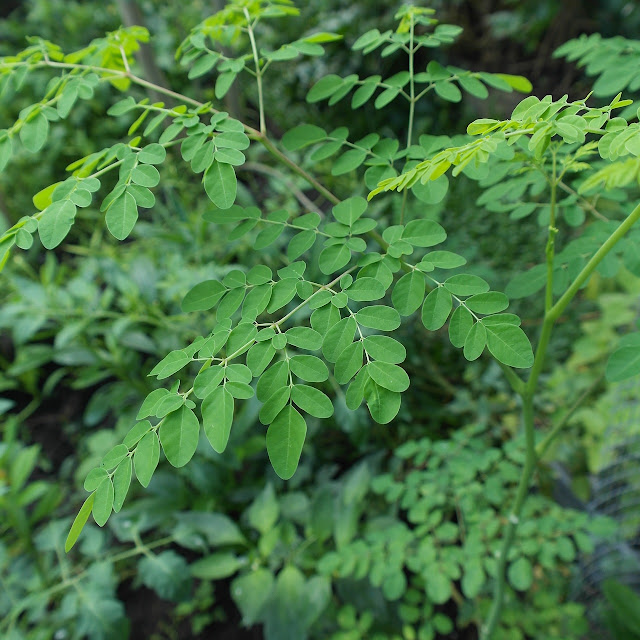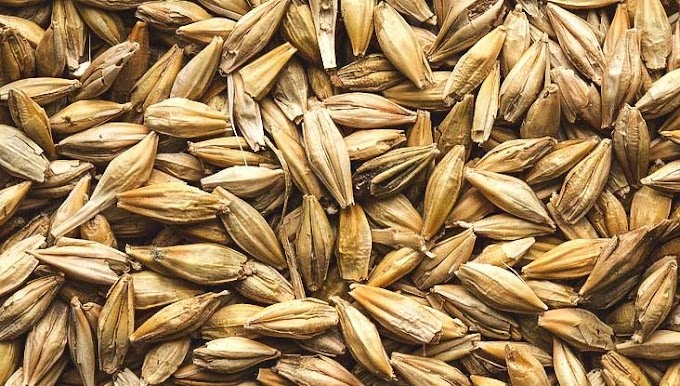What is Moringa? Its Benefits, Uses, and What is Moringa good for?
What is Moringa?
Moringa is a genus of trees and shrubs native to tropical and subtropical regions of South Asia and Africa. The most commonly cultivated species is Moringa oleifera, which is also known as the drumstick tree, horseradish tree, or ben oil tree.Moringa is highly valued for its nutritional and medicinal properties. Its leaves, pods, seeds, and roots are all edible and are used in traditional medicine to treat a variety of ailments such as inflammation, infections, and digestive issues. Moringa is also a rich source of vitamins, minerals, and antioxidants, and is often used as a dietary supplement.
Moringa, also known as the drumstick tree or horseradish tree, is a fast-growing tree that is native to the Himalayas in northwestern India. It is now widely cultivated in tropical and subtropical regions around the world, particularly in Africa, Asia, and Latin America.
Moringa is known for its numerous nutritional and medicinal benefits. Almost all parts of the tree, including the leaves, seeds, and pods, are edible and can be used in various ways. The leaves, for example, are a rich source of vitamins, minerals, and antioxidants and can be consumed fresh or dried and added to soups, stews, salads, or smoothies. The seeds, on the other hand, are rich in healthy fats, protein, and fiber and can be eaten roasted or boiled, or used to extract oil.
Moringa is a supplement thick plant that is loaded with nutrients, minerals, and cell reinforcements. Here are some of the potential benefits of consuming moringa:
Rich in Nutrients: Moringa is rich in vitamins A, C, and E, as well as minerals like calcium, iron, and potassium. It also contains all essential amino acids, making it a complete protein source for vegetarians and vegans.
Anti-inflammatory properties: Moringa has been shown to have anti-inflammatory properties, which can help reduce inflammation and pain in the body.
Boosts Immunity: Moringa is rich in antioxidants like flavonoids, polyphenols, and ascorbic acid, which help to protect against oxidative stress and free radical damage. It also has immune-boosting properties due to its high content of vitamins and minerals.
Lowers Cholesterol: Moringa has been shown to lower cholesterol levels in some studies, possibly due to its high content of antioxidants and plant sterols.
Regulates Blood Sugar: Moringa may help regulate blood sugar levels, which could be beneficial for people with diabetes or those at risk of developing the disease.
Supports Digestive Health: Moringa has traditionally been used to treat digestive problems like constipation and diarrhea. It may help improve digestion and promote healthy bowel movements due to its high fiber content.
Potential anti-cancer properties: Some studies have suggested that moringa may have anti-cancer properties due to its high antioxidant content and ability to induce apoptosis (cell death) in cancer cells.
Overall, moringa is a versatile plant with numerous potential health benefits. However, more research is needed to understand its effects on human health.
Moringa has been used for various purposes, including:
Food: The leaves, pods, and seeds of moringa are edible and can be used in cooking. The leaves are often used to make soups, stews, and curries, while the pods can be cooked and eaten like green beans. The seeds are usually roasted, boiled, eaten as a snack, or used to extract oil.
Nutritional supplements: Moringa supplements are widely available in the form of capsules, powders, and teas. These supplements are marketed as a source of vitamins, minerals, and antioxidants.
Traditional medicine: Moringa has been used for centuries in traditional medicine to treat a variety of ailments, including anemia, arthritis, asthma, digestive problems, and infections.
Cosmetics: Moringa oil, extracted from the seeds, is rich in antioxidants and is often used in cosmetics like lotions, soaps, and hair products.
Water purification: Moringa seeds have been found to have water-purifying properties. They can be crushed and added to water to remove impurities and make them safe for drinking.
Animal feed: Moringa leaves and pods can be used as nutritious feed for livestock, as they are high in protein and other nutrients.
Overall, moringa is a versatile plant with numerous potential uses in food, medicine, and industry.
Moringa can be used in a variety of ways, depending on the form in which it is consumed. Here are some common ways to use moringa:
Fresh leaves: Moringa leaves can be washed and chopped and added to salads, soups, and stews. They can also be sautéed with garlic and onions as a side dish.
Dried leaves: Moringa leaves can be dried and ground into a powder, which can be added to smoothies, juices, or teas. The powder can also be used as a seasoning in dishes like soups and stews.
Pods: Moringa pods can be cooked and eaten like green beans or sliced and added to salads.
Seeds: Moringa seeds can be roasted and eaten as a snack or boiled and used in soups and stews. The seeds can also be crushed and added to water to purify them.
Supplements: Moringa supplements are available in the form of capsules, powders, and teas. These supplements can be taken according to the manufacturer's instructions.
When using moringa, it's important to be mindful of the dosage and potential side effects. While moringa is generally considered safe, consuming large amounts of moringa supplements or seeds may cause digestive problems or interfere with certain medications. If you're unsure about how to use moringa, consult with a healthcare professional.
Moringa is a nutrient-dense plant that is believed to offer several potential health benefits. Some of the reported benefits of consuming moringa include:
Boosting immunity: Moringa is rich in antioxidants, which help protect the body against oxidative stress and free radical damage. It is also high in vitamin C, which is important for immune system function.
Improving digestion: Moringa contains high levels of fiber, which can help promote healthy digestion and prevent constipation. It is also believed to have anti-inflammatory properties that can help alleviate digestive problems like bloating and gas.
Lowering cholesterol: Some studies suggest that moringa may help reduce cholesterol levels, which can lower the risk of heart disease.
Regulating blood sugar: Moringa has been found to have hypoglycemic properties, which means it may help regulate blood sugar levels in people with diabetes or those at risk of developing the disease.
Supporting brain health: Moringa is rich in vitamins and minerals that are important for brain function, such as vitamin E and magnesium. Some studies suggest that it may help protect against cognitive decline and improve memory.
Promoting healthy skin and hair: Moringa oil is high in antioxidants and has been used in traditional medicine to treat skin and hair problems like dryness, inflammation, and dandruff.
Overall, moringa is a versatile plant that has numerous potential health benefits. However, more research is needed to understand its effects on human health.
Moringa has been traditionally used for its medicinal properties to treat a variety of diseases. Some of the diseases that moringa has been found to be beneficial for include:
Diabetes: Moringa has been found to have hypoglycemic properties, which means it may help regulate blood sugar levels in people with diabetes or those at risk of developing the disease.
High cholesterol: Some studies suggest that moringa may help reduce cholesterol levels, which can lower the risk of heart disease.
Inflammation: Moringa has been found to have anti-inflammatory properties, which can help alleviate inflammation in the body and reduce the risk of chronic diseases.
Arthritis: Moringa has been traditionally used to treat arthritis due to its anti-inflammatory properties.
Anemia: Moringa is rich in iron and other essential nutrients, which can help treat and prevent anemia.
Asthma: Moringa has been found to have bronchodilator properties, which means it may help relax the airways and improve breathing in people with asthma.
Digestive problems: Moringa is high in fiber, which can help promote healthy digestion and prevent constipation. It is also believed to have anti-inflammatory properties that can help alleviate digestive problems like bloating and gas.
It's important to note that while moringa may benefit these conditions, more research is needed to understand its effects on human healthfully. As with any medicinal plant or supplement, it's best to consult with a healthcare professional before using moringa to treat a specific disease or health condition.











